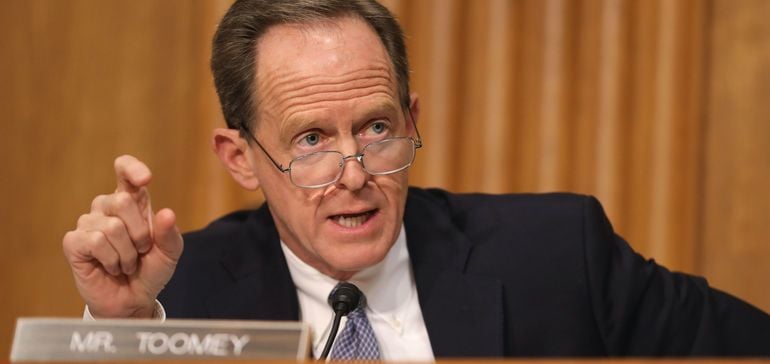Dive Brief:
- A group of Republican senators, led by Pennsylvania’s Pat Toomey, introduced legislation Wednesday they say would increase accountability and limit power at the Federal Reserve.
- The Federal Reserve Accountability Act would reduce the number of Fed regional banks from 12 to five and would make the top leadership posts at Fed regional banks subject to presidential appointed and Senate confirmation. Such steps, the senators said, would address the agency’s “left-leaning political bias and limit the concentration of power in Washington.”
- The legislative push comes less than two weeks before Toomey’s time in Congress ends. For more than a year, the senator has used his position as ranking member on the Senate Banking Committee to highlight what he views as regulators’ and the banking industry’s growing embrace of “woke-ism.”
Dive Insight:
The GOP-backed bill likely faces a tough road ahead in the Democratic-controlled Senate. Social-justice advocates, for one, may question why the bill suggests eliminating particular Fed regional banks over others. Shuttering the Atlanta, Minneapolis and Boston Fed, for example, would take away all of the Fed’s nonwhite regional presidents. Raphael Bostic, who is Black, serves as the Atlanta Fed’s president. Neel Kashkari, who is of Indian descent, runs the Minneapolis branch. And Susan Collins, a Black woman, took the top role in Boston in July.
Curious, too, may be the choice to eliminate the Chicago Fed in favor of having Midwest interests represented from more Republican-friendly Ohio.
“Despite their narrow and nonpartisan statutory mandates, the Fed and regional Fed banks have increasingly inserted themselves into politically charged issues like global warming and social justice,” Toomey said in a statement Wednesday. “Congress has a responsibility to ensure the Fed does not become a political actor. This legislation will further that important goal by reforming the Fed to make it more accountable to Congress and the American people.”
The bill would eliminate the regional Fed banks in Boston, Philadelphia, Richmond, Atlanta, Chicago, St. Louis and Minneapolis, while their counterparts in New York, Cleveland, Kansas City, Dallas and San Francisco would remain.
The bill’s backers say the move would enable more effective congressional oversight and ensure that all Fed regional bank presidents have permanent seats on the Federal Open Market Committee (FOMC).
In an effort to prevent Fed regional banks from engaging in political lobbying, the bill would apply the federal Anti-Lobbying Act to the Fed regional banks and the Fed Board of Governors so that federal resources can’t be used for political lobbying at the state or federal level.
The bill also imposes strict new residency requirements on Fed regional bank presidents in an effort to ensure Fed governors represent a cross-section of the country.
The measure is the second pertaining to Fed accountability Toomey has introduced this month. He and Sen. Elizabeth Warren, D-MA, introduced the bipartisan Financial Transparency Act, which would force the 12 regional branches of the Fed to respond to information requests from Congress under the Freedom of Information Act.
The proposed legislation also seeks to align the Fed with other large agencies by making its inspector general a presidential appointee and forbidding all financial regulatory agencies from denying ethics-related information requests from Congress.
Each of that bill’s sponsor has pushed, over the past year, for greater transparency at the Fed — though from different angles. Warren has focused particular attention on financial disclosures of Fed officials, which have led to the resignations of Fed Vice Chair Richard Clarida, and now-former Boston and Dallas Fed Presidents Eric Rosengren and Robert Kaplan. A similar scandal threatened to envelop Bostic, the Atlanta Fed chief, in October.
Toomey, meanwhile, waged a war of words this year with Kansas City Fed President Esther George, who refused to detail for Toomey how the fintech Reserve Trust received a Fed master account, allowing the company to move money through the Fed system without using a bank.



